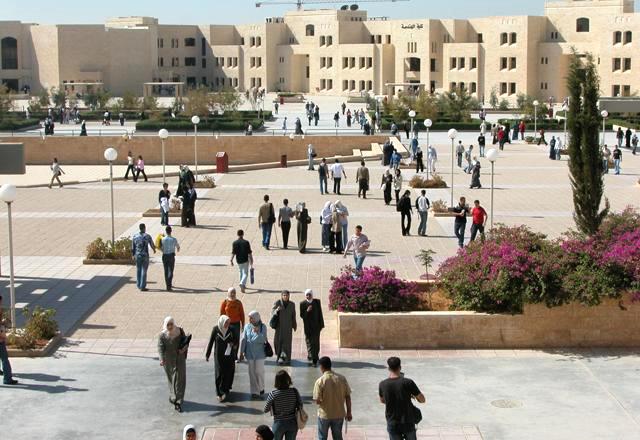You are here
Experts urge government to rein in unemployment rate
By Rana Husseini - Sep 13,2020 - Last updated at Sep 13,2020
AMMAN — Economist on Sunday warned that if the government fails to adopt measures that will boost the economy and encourage investment in Jordan, the unemployment rate might double and the country could go into recession.
"The unemployment numbers went up from 19.3 per cent during the first-quarter of this year to 23 per cent in the third-quarter and this is really alarming," said Economist Reem Badran.
The current 23 per cent unemployment figures mean that 95,000 people, including 78.5 per cent who are women and 21.5 per cent who are men are unemployed, and this is extremely alarming", Badran told The Jordan Times.
"The general debt reached around 111.7 per cent and this means that by the end of the year, we might go into recession," according to Badran.
Badran told The Jordan Times that based on the studies and economists' analysis, the unemployment rate "could reach 27 per cent by the end of the year because of the different factors".
The increase in unemployment rate will result in a rise in poverty and poverty pockets in the Kingdom, which "would affect the security situation and we might see more crimes as a result," Badran added.
Meanwhile, Director of the Phenix Centre for Economic Studies Ahmad Awad said that the unemployment indicators announced by the Department of Statistics (DoS) last week are not surprising to anyone, because the repercussions of COVID-19 on the economy were profound, and these numbers are expected to be higher during the third-quarter of the current year 2020.
"It is known that unemployment rates were very high before the start of COVID-19’s impact on the national economy, reaching 19.3 per cent during the first-quarter of this year," Awad told The Jordan Times..
Awad attributed the figures to many reasons, saying that the capabilities of the national economy to "generate new job opportunities have retreated due to the economic slowdown that we have been suffering from for nearly 10 years, and the decline in overall domestic demand for consumers due to lower wage levels for the large majority of daily wage workers, as well as the high tax burden [general sales tax and special taxes]".
Awad also pointed out that the government employment policies did not target “the real reasons” for Jordanians’ reluctance to work in specific economic sectors, the most important of which are agriculture and construction sectors, where working conditions are very low, as well as “the deep imbalances” in the education system that pushed young people to study at university at the expense of technical and vocational education.
Economist Wajdi Makhamreh attributed the rise in unemployment to many factors such as the impact of COVID-19 on the economy, the different tax and investment laws that are constantly being changed, which is "playing a factor in pushing the investors away and they are taking their money to countries such as Egypt, the UAE and Turkey".
"These factors are discouraging investors from thinking of opening business in Jordan and at the same time the government is unable to employ people, especially fresh graduates," Makhamreh told The Jordan Times.
At the same time, "we have a high number of foreign labourers and the Syrian refugees working in the Kingdom, which is increasing the unemployment rate for Jordanians”, according to Makhamreh.
"We should assess the depth of the problem and discuss it with the stakeholders to come out with short and medium-term resolutions," Badran noted.
She added: "We need to act based on the current situation and have quick fixes today, such as how to offer incentives and develop economic tools to boost the economy and support business owners and companies."
A July report by the Workers’ House predicted that the number of unemployed citizens will reach 629,000 by the end of this year.
The report, made available to The Jordan Times, noted that the predicted figure consists of 350,000 citizens who were unemployed before the coronavirus pandemic, 146,000 who are now likely to lose their jobs in the formal and informal sectors due to the pandemic, 100,000 who are new entrants to the labour market as job seekers and 33,000 are Jordanian expatriate workers who lost their jobs abroad.
The report noted that the World Bank estimated the remittances of Jordanians during 2019 to be $3.7 billion, a figure which declined during the first four months of 2020 by 6 per cent compared with last year.
The report also showed that the return of expatriates will contribute, along with other factors, in a very large increase in unemployment rates.
Before the pandemic, the unemployment rate stood at 19.3 per cent, numbering 350,000 citizens. The report feared that with the World Bank expecting the Kingdom’s economic growth to decline in 2020 by 5.8 per cent, the unemployment percentage will “significantly increase”.
Related Articles
AMMAN — Forty-eight per cent of all young people in Jordan are unemployed, according to a statement issued by the Jordan Labour Watch (JLW)
AMMAN — Experts said that the government needs to adopt new methods to encourage more youth to join professions that are usually assumed by
AMMAN — Economists and experts on Thursday said labourers are expected to experience hardships as a result of the COVID-19 crisis that is ex
















